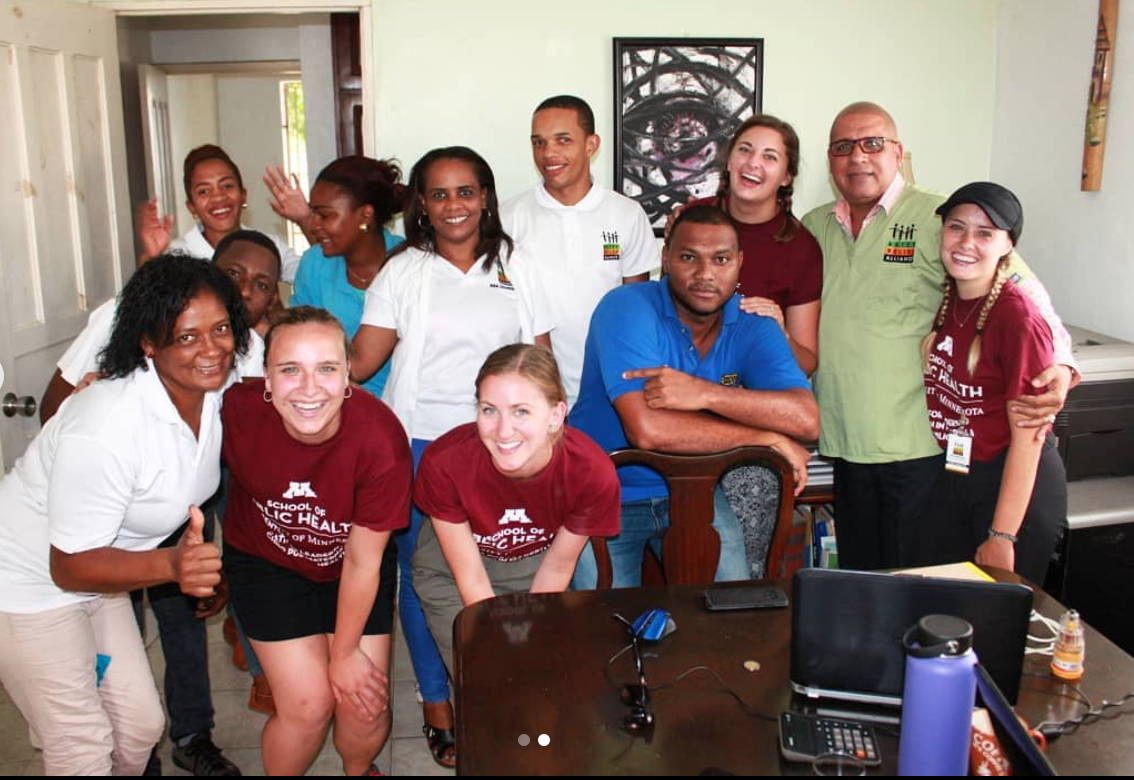This piece is part of a five part series of Student Spotlights highlighting the applied practice experience of four students in the Dominican Republic during the Summer of 2018. The other four parts of the series include an interview by Elizabeth Stanczyk and experience reflections from Shelby Panttaja, Elizabeth Stanczyk, and Keelin Roche. #UMNMCH student Hannah McNamee (MPH ‘19) wrote this reflection on how her interests in Reproductive Health and Family Support intertwined with defining “Women Empowerment” in the Dominican Republic.

Background and Previous Experience
When I was applying and deciding where to attend graduate school, one of the main draws of the University of MN School of Public Health was its focus on experiential learning. So when I eventually started the Maternal and Child Health (MCH) Program in 2017, I was excited about finding the right field experience for me. Since completing almost three semesters in the Program, my interests have expanded; but when I first entered, I was extremely focused on reproductive and perinatal health. Therefore, I was intent on finding a field experience with a focus in these areas, and I was excited about the opportunity to go abroad, ideally to a Spanish-speaking country. Thanks to our Foundations of MCH Leadership course in the first semester, I was able to express these desires to Professor Bonilla, who ultimately helped match my interests with new experiences. Working with three other MCH students on a women’s empowerment initiative (WEI) in the Dominican Republic perfectly fit my interests, goals, and requirements: as soon as I heard about the opportunity, I knew it was a great fit.
My Role
Although the four of us all worked together to create an evaluation and monitoring system for the WEI, we each came in with our own expertise, interests, and goals. My goal was focused on learning about, examining, and giving recommendations to improve the work being done for reproductive and perinatal health. For the women involved in the WEI, many live in towns that have access to the Batey Relief Alliance (BRA) medical clinic. It is at this clinic that women and their families have access to free medical services, including contraception (male and female condoms), pap smears, and prenatal care. BRA has an adjacent mom and baby program that runs out of this site, which includes many of the women involved in the WEI. This program works closely with pregnant and postpartum mothers to provide comprehensive care, breastfeeding assistance, and education around parenting and perinatal topics. Although I didn’t have a chance to directly observe this adjacent program, I was able to speak with one of the doctors at the clinic and observe clinic goings on. One of the most important services offered through this clinic is education. For example, while shadowing the doctor, I witnessed a woman from the community reject using condoms because they “give you disease.” Luckily, the doctor was able to intervene and provide education about the importance of using condoms to prevent disease, rather than cause it.
 Although there is amazing work being done by BRA, we were interested in hearing about the specific reproductive and perinatal needs of the women involved in the WEI. From our research, we knew that a woman’s reproductive health is a huge indicator of her own empowerment and the subsequent health of her family. Therefore, we included questions in our survey instrument about use of contraceptives and protection, sexual violence, and number of children. While observing the clinic and talking with the women in the community, we became concerned about several risk factors, including a lack of consistent condom availability, lack of general awareness about condom use, and unsafe transportation to hospitals. We left BRA with recommendations about how to use the survey data to bolster their program and address some of these concerns.
Although there is amazing work being done by BRA, we were interested in hearing about the specific reproductive and perinatal needs of the women involved in the WEI. From our research, we knew that a woman’s reproductive health is a huge indicator of her own empowerment and the subsequent health of her family. Therefore, we included questions in our survey instrument about use of contraceptives and protection, sexual violence, and number of children. While observing the clinic and talking with the women in the community, we became concerned about several risk factors, including a lack of consistent condom availability, lack of general awareness about condom use, and unsafe transportation to hospitals. We left BRA with recommendations about how to use the survey data to bolster their program and address some of these concerns.
It was exciting to use what I learned in my evaluation, intervention, and sexual health courses to inform the work we did with BRA over the summer. I am eager to hear about advancements, application of our recommendations, and results from the data collection next summer when the next group of students spend their summer in the Dominican Republic. Ultimately, I’m grateful to have spent three weeks working with and learning from the BRA staff and support who are working tirelessly to provide much needed medical and social services to an extremely disadvantaged and disenfranchised population.
Read Student Spotlight Archives
Interested in learning more about getting a degree in Maternal and Child Health? Visit our MCH Program page for more information.
#UMNMCH #UMNProud #UMNDriven